- Today's Posts
- General Tractor Topics
- Oil, Fuel & Lubricants

Which fluids to use on Mahindra 2638
- Thread starter AI6MK
- Start date Sep 6, 2020
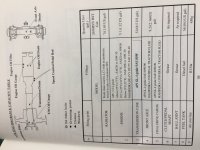
Super Member
GL-5 contains sulphur and phosporus. Those provide extra protection for high forces on gears but will eat copper and bronze. It's not a good idea to run GL-5 in something that calls for GL-4. There won't be sychros in your axle but there may be other brass parts. Are you sure the transmission calls for 32l of 80w-90? Usually in a CUT the transmission fluid is also the hydraulic fluid, and you use a tractor fluid (which is hydraulic fluid with additives to make it work with wet clutches and brakes). Assuming it really uses a premium tractor fluid, Mobilfluid 424 and Chevron THF-1000 are good choices. My dealer who sells Branson and Mahindra uses THF-1000 as their standard shop fluid.
Footer Links 1
- Terms of Use
- Privacy Policy

- Forum Listing
- Marketplace
- Advanced Search
- 1998.5-2002 2nd Gen Dodge 5.9L 24V Cummins
- 98.5-02 Non-Powertrain
- June's Cummins of the Month is now open for entries!
traveller oil
- Add to quote
Who makes Traveller oil (sold at Tractor Supply). I did some searching, but couldn't find a definite answer. I heard shell, which i doubted, and then I heard Old World Industries, who also make peak anti-freeze. Traveller Premium 15w40 is rated up to CI-4. I've also read that CI-4 is better for pre-'07 trucks than CJ-4. This being due to CJ-4 lacking additives that don't play well with new emissions equipment. I think it's priced the same as Shell Rotella T, which I currently use, but I'm just curious. Any thoughts?
Anyone? I'm sure someone else has seen Traveller in the local TSC and considered using it.:confused013:
Thanks for the input. I haven't been in TSC for a while, so I haven't looked it over in person. I'll report what I find. Does anyone have an opinion on CI-4 vs. CJ-4 for pre-'07 trucks?
Hey, I'm not sure about that one... Here is a little information I found on the internet: Side by Side: CJ-4 vs. CI-4/CI-4 PLUS oil - EquipmentWorldMagazine.com Understanding CJ-4 - Canada CJ-4 Service Category Description Not sure if any of it really helps much, but it informs you/us on what the differences are. I learned a lot in just reading though them a couple minutes!!!:thumbsup: I really didn't know there was a switch... Good-Luck, Winslow
any new info on this ? got a sale flier from a new tractor supply that just opened, stuff is on sale for 8.99 a gallon
As long as it meets CI-4 or CJ-4 it should be fie for using in your Cummins.
found it , A: According to the API service classification, these products meet or exceed the performance requirements for API Service CI-4/SL. The "SL" classification indicates these engine oils can be used in gasoline engines. But remember: Always refer to the automobile's Owner's Manual for the preferred SAE grade.
ive thought about using travelers but never have... a lot of people on here say the Valvoline is the best... idk i always figured oil was oil
I use Valvoline blue conventional and it seems fine. I have used Rotella and Delo before and they presented no problems either. The oil distributor who came by my old job told me that Delo had the highest zinc content, but that was several years ago, and formulations can change. I think that any of the name brand oils are a fine bet. As for Travellers, I am currently running their UTF in my old Case backhoe, but i haven't had it all that long, so I cant comment on its overall longevity, and I have not tried their engine oil. We generally get supplied with Warren oils at work, and all I can tell you is that they work ok for fleet service, but I'm sure its the cheapest they can get, as vehicle service isn't the biggest concern for the higher ups.
Lets face it fellas, these 5.9 engines are *tough*. To think they really care much about the oil in the crankcase is probably just bench-racing. Is it slippery? Is it clean? Okay, we're good. As long as it's diesel rated (so it captures the soot), I really don't care what brand/type/weight you put in it. Chances are, it'll run a half million miles or more without issues. And when it does have issues, it's not going to be because of an oiling issue (unless you run the crankcase dry - but that's your fault). I run expensive Mobil 1 5w-40 in mine. I'm a Mobil 1 guy, and I like to go 15,000-20,000 between oil changes. Mobil 1 does that just fine. But to really think that Delo, or Rotella, or Warren, or TSC oils is gonna make a difference - - well, I think the millions of these engines in fleet service where minimum attention and the cheapest possible would indicate they really don't care.
What about the Super Tech walmart brand 15w-40? That stuff is cheap and so are the filters. Wouldn't be a bad thing to flush the engine out with a couple gallons.
As far as I know it was PennzOil last time I checked and don't see any problem with that.
These engine's are tuff the first Cummins I owned was a 95 12 v bought from a buddy of mine. I went to pick it up about three hours from my house and the guy said it was all good to go so I just hopped in and left. I drove ut home and atound town and stuff then I took it too a mechanic to have it looked out, the front cover was cracked and there was bo oil in the motor. We were both shocked ut made it the 3 hour ride home Sent from AutoGuide.com Free App
- ?
- 383.2K members
Top Contributors this Month

Force Traveller 3350: 9 / 12 / 13 / 14 Seater Van Specifications
*ex - showroom price of force traveller 3350: 9 / 12 / 13 / 14 seater van is 15.44-19.32 lakh*, don't miss out on the best discount offers on force traveller 3350: 9 / 12 / 13 / 14 seater van for this month, force traveller 3350: 9 / 12 / 13 / 14 seater - 4 wheeler highlights.
Force Traveller 3350: 9 / 12 / 13 / 14 Seater Van Power
Force Traveller 3350: 9 / 12 / 13 / 14 Seater Van GVW
Force Traveller 3350: 9 / 12 / 13 / 14 Seater Van Fuel
Force Traveller 3350: 9 / 12 / 13 / 14 Seater Van Engine
Force Traveller 3350: 9 / 12 / 13 / 14 Seater Van Cylinders

Key Specifications of Force Traveller 3350: 9 / 12 / 13 / 14 Seater Van
- Configuration
Force Traveller 3350: 9 / 12 / 13 / 14 Seater Van Engine Displacement
Force traveller 3350: 9 / 12 / 13 / 14 seater van engine cylinders, force traveller 3350: 9 / 12 / 13 / 14 seater van torque, force traveller 3350: 9 / 12 / 13 / 14 seater van clutch, force traveller 3350: 9 / 12 / 13 / 14 seater van transmission, force traveller 3350: 9 / 12 / 13 / 14 seater van gearbox, force traveller 3350: 9 / 12 / 13 / 14 seater van max speed, force traveller 3350: 9 / 12 / 13 / 14 seater van emission norms compliance, force traveller 3350: 9 / 12 / 13 / 14 seater van fuel type, force traveller 3350: 9 / 12 / 13 / 14 seater van fuel tank capacity, force traveller 3350: 9 / 12 / 13 / 14 seater van seating capacity, force traveller 3350: 9 / 12 / 13 / 14 seater van axle configuration, force traveller 3350: 9 / 12 / 13 / 14 seater van front axle, force traveller 3350: 9 / 12 / 13 / 14 seater van rear axle, force traveller 3350: 9 / 12 / 13 / 14 seater van front suspension, force traveller 3350: 9 / 12 / 13 / 14 seater van rear suspension, force traveller 3350: 9 / 12 / 13 / 14 seater van anti roll bar, force traveller 3350: 9 / 12 / 13 / 14 seater van tyres, force traveller 3350: 9 / 12 / 13 / 14 seater van wheelbase, force traveller 3350: 9 / 12 / 13 / 14 seater van turning circle diameter, force traveller 3350: 9 / 12 / 13 / 14 seater van ground clearance, force traveller 3350: 9 / 12 / 13 / 14 seater van overall length, force traveller 3350: 9 / 12 / 13 / 14 seater van overall width, force traveller 3350: 9 / 12 / 13 / 14 seater van overall height, force traveller 3350: 9 / 12 / 13 / 14 seater van front overhang, force traveller 3350: 9 / 12 / 13 / 14 seater van rear overhang, force traveller 3350: 9 / 12 / 13 / 14 seater van specification highlights, frequently asked questions on force traveller 3350: 9 / 12 / 13 / 14 seater van, what is the latest force traveller 3350: 9 / 12 / 13 / 14 seater price in india , force traveller 3350: 9 / 12 / 13 / 14 seater price starts from rs 15.44-19.32 lakh* . the 2024 price of force traveller 3350: 9 / 12 / 13 / 14 seater can vary slightly from state to state and city to city., what is force traveller 3350: 9 / 12 / 13 / 14 seater power and torque , in terms of performance, force traveller 3350: 9 / 12 / 13 / 14 seater produces a maximum power of 115 hp@2950 rpm and a maximum torque of 350 nm@1400-2200 rpm, what is the gearbox and transmission type in force traveller 3350: 9 / 12 / 13 / 14 seater , force traveller 3350: 9 / 12 / 13 / 14 seater comes with a 5 speed (5f+1r) transmission, what is the fuel tank capacity of force traveller 3350: 9 / 12 / 13 / 14 seater , force traveller 3350: 9 / 12 / 13 / 14 seater comes with diesel fuel option and its fuel tank capacity is diesel: 70 litres# def: 23 litres, what is force traveller 3350: 9 / 12 / 13 / 14 seater tyre size , the tyre size of force traveller 3350: 9 / 12 / 13 / 14 seater is 215/75 r15, what is the emi of force traveller 3350: 9 / 12 / 13 / 14 seater , the monthly emi of any truck depends on the interest rate offered by bank, down payment made by the buyer and the loan tenure. considering a 10% down payment and 9.5% rate of interest, the emi of force traveller 3350: 9 / 12 / 13 / 14 seater is expected to be around rs 29640 for a 5 year period, new small vehicles by brand.

Force Traveller 3350: 9 / 12 / 13 / 14 Seater Van Competitors
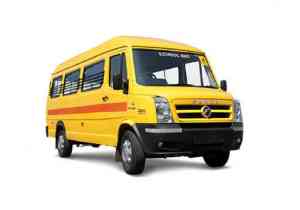
Force Traveller School 4020: 20 Seater Van
₹ 16.42-17.26 Lakh*

Tata Winger Ambulance Non-AC 3200
₹ 14.79 Lakh* Onwards
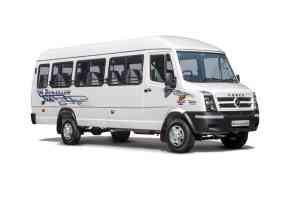
Force Traveller 4020 Super: 19 / 20 Seater Van
₹ 16.4-17.26 Lakh*

Tata Winger Luxury 9 Seater Van
₹ 15.33 Lakh* Onwards

Force Urbania 3350 10 Seater Van
₹ 29.5 Lakh* Onwards
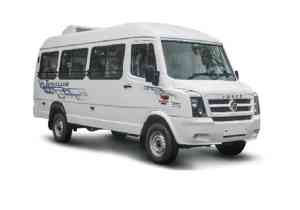
Force Traveller 3700 Super: 12 / 17 Seater Van
₹ 17.16-21.79 Lakh*

Tata Winger School 18 Seater Van
₹ 13.89 Lakh* Onwards
Truck & Bus Web Stories
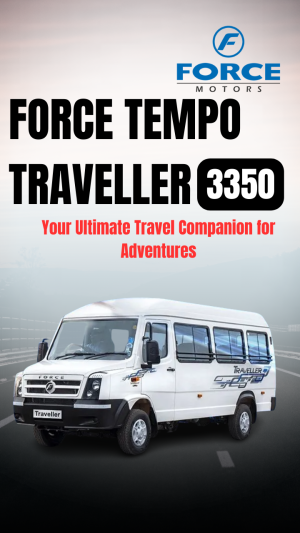
Force Tempo Traveller 3350: Discovering Versatility and Performance
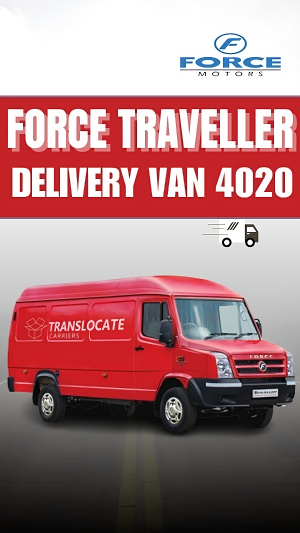
Exploring the Safety Features of the Force Traveller Delivery Van 4020
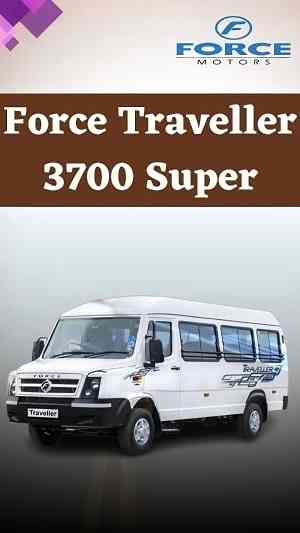
Luxury Tour & Travel on Wheels: The Force Traveller 3700 Super Van

Top 5 Popular Force Traveller School Vans in India
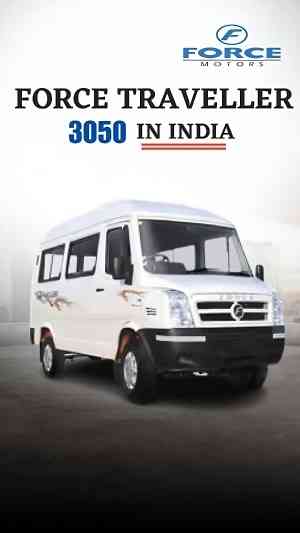
Force Traveller 3050 Van with Comfort and Convenience

Discovers The Tata Winger for Tour and Travels
Compare force traveller 3350: 9 / 12 / 13 / 14 seater van with competitors.


Test Results on FRAM, Sunoco, Traveller, and Wolf’s Head
- August 2, 2021

Product: FRAM Full Synthetic Motor Oil Viscosity Grade: SAE 5W-20 Labeled: API SP/ILSAC GF-6A
The results of the tests conducted on this sample meet the SAE J300 specifications for the SAE Viscosity Grade listed on the product label, and are consistent with the listed API Service Categories.
Full Report

The results of the tests conducted on this sample meet the SAE J300 specifications for the SAE Viscosity Grade listed on the product label, and are consistent with the listed API Service Categories.

CONSUMER ADVISORIES AND ALERTS
ADVISORIES, CONSUMER ALERTS, AND DON’T BUYS Consumer Alert A CONSUMER ALERT is issued by PQIA when the product tested has a significant

PASSENGER CAR MOTOR OIL
PETROLEUM QUALITY INSTITUTE OF AMERICA SAMPLE SUMMARY/PASSENGER CAR MOTOR OIL Passenger car motor oil is the lifeblood of your engine. In addition to lubricating moving

HEAVY DUTY DIESEL ENGINE OIL
PETROLEUM QUALITY INSTITUTE OF AMERICA SAMPLE SUMMARY/HEAVY DUTY DIESEL ENGINE OIL Heavy duty diesel engine oils are formulated to meet the

AUTOMATIC TRANSMISSION FLUID
PETROLEUM QUALITY INSTITUTE OF AMERICA SAMPLE SUMMARY/AUTOMATIC TRANSMISSION FLUID Automatic Transmission Fluids are carefully balanced to

ANTIFREEZE & COOLANT
PETROLEUM QUALITY INSTITUTE OF AMERICA SAMPLE SUMMARY FOR ANTIFREEZE & COOLANT Antifreeze/coolant is critical for protecting engines. The primary

Copyright Ⓒ 2021 Petroleum Quality Institute of America, LLC All rights reserved.
Privacy Overview
Discover more from the petroleum quality institute of america.
Subscribe now to keep reading and get access to the full archive.
Continue reading

- Remember me Not recommended on shared computers
Forgot your password?
- Technical IH Talk
Oil type,weight recommended for older ih tractors.
By 656IH March 26, 2018 in Technical IH Talk
- Start new topic
Recommended Posts

Smallest I have is a low boy 154, up to my biggest a farmall 656. Will a synthetic 15w50 work Well? Thanks.
Link to comment
Share on other sites.

FARMALL1880
18 minutes ago, 656IH said: Smallest I have is a low boy 154, up to my biggest a farmall 656. Will a synthetic 15w50 work Well? Thanks.
Yeah I think you should be okay that’s a good all around oil

Oh, boy.....
Where is the popcorn? I am on the other side NO.

13 minutes ago, R190 said: Where is the popcorn? I am on the other side NO.
I'm with you.
To the OP: Is the 656 gas or diesel?
On medium and light duty work you won't hurt the engine, but my opinion on doing heavy work with the IH engine's. 361 407. And all. 400 series , they will last longer running 30 wt oil , especially if over fueled. Steve

lightninboy
Do you use them below freezing? Below zero? Are they all gas?
Are all tractors gas? If so IH 30w low Ash would be my choice.
Get a manual and use what it says to use.

wolverine392ih
This horse is so long ago dead and gone but we're still beating it. Love it!
Yes all are gas. Temp range they would run in is 0 degrees F to 100 degrees F. They are run heavily during spring tillage only, rest of year they are used likely. What are some brand names of the low ash oil? Appreciate everyone' s input. Thanks.
Case IH Low Ash SAE 30 except for Case IH Low Ash 10W in the winter is the rule of thumb in the manuals. If you start in a heated shed in the winter, you might get by with SAE 30 year around.
You want to use Amsoil or what?

Missouri Mule
Dang fellas I don’t think the op was trying to start a war.... he was innocent.
The the op:
Its hard to go wrong with manufacturers spec oil. Any dealer will have case ih 30wt low ash oil. Or 15w40 in winter if starting hard in cold. I don’t think anyone will say don’t use it. However sometimes it boils down to availability and personal preference. YOU do what YOU want. For what it’s worth I just bought 5 gallon of case ih oil from dealer for $65.00. NOW, you go to any parts store and price a good oil and it’s over $13/gallon unless it’s on sale. SOOO i buy case IH. What the guys are saying is everyone has THEIR own opinion of what to use. That’s my .02. Same with hytran especially.

21 minutes ago, Missouri Mule said: Dang fellas I don’t think the op was trying to start a war.... he was innocent. The the op: Its hard to go wrong with manufacturers spec oil. Any dealer will have case ih 30wt low ash oil. Or 15w40 in winter if starting hard in cold. I don’t think anyone will say don’t use it. However sometimes it boils down to availability and personal preference. YOU do what YOU want. For what it’s worth I just bought 5 gallon of case ih oil from dealer for $65.00. NOW, you go to any parts store and price a good oil and it’s over $13/gallon unless it’s on sale. SOOO i buy case IH. What the guys are saying is everyone has THEIR own opinion of what to use. That’s my .02. Same with hytran especially.
Yeah, was looking for insite. Thanks to everyone. Alot of people with more expereience than I. Thanks again.

Here we go again, I actually use 15w40 in the 5288 change it every season or 100 hours, especially when most use of tractor is in winter.

Use an oil with the higher DEFY . For the flat tappet lifters , some people say zinc , that's what I think anyway , getting harder to find you read labels it doesn't say much about what levels they are using ,must figure there aren't any older motors people who cares .we comply with SAE
Everyone has their opinion.I think also you cant go wrong with what the owners manual says in weight and viscosity.It is when you start getting into brands that people start to fight.I have a good friend who is a better mechanic then me,he told me once years ago after I overhauled IH diesel tractor,he doesn't get to excited about brands of oil,but CLEAN is the best oil.
Change every 100 hours. 2 5288's
Thanks to all.
This topic is now archived and is closed to further replies.
- Existing user? Sign In
- Red Power Magazine
- Online Users
- All Activity
- My Activity Streams
- Unread Content
- Content I Started
- Leaderboard
- Create New...

Who Makes Traveller Oil, And Is It Any Good?
Traveller is a sub-brand name of a reputed company in the USA. But this traveller isn’t the manufacturer of the ‘Traveller Oil’. Now it’s a big question: Who makes Traveller Oil?
Warren distribution, a highly reputed manufacturer company of North America, made the traveller oil. For more than five decades, this brand has been serving its clients. As one of the largest manufacturers, it is the biggest provider of private label fluids and industrial lubricants in the USA.
In this blog post, we will speak out about who makes traveller oil and is it any good or not? Aside from that, you can learn more about the origins of the best products below. Let’s see why traveller motor oil is more famous and worthy.
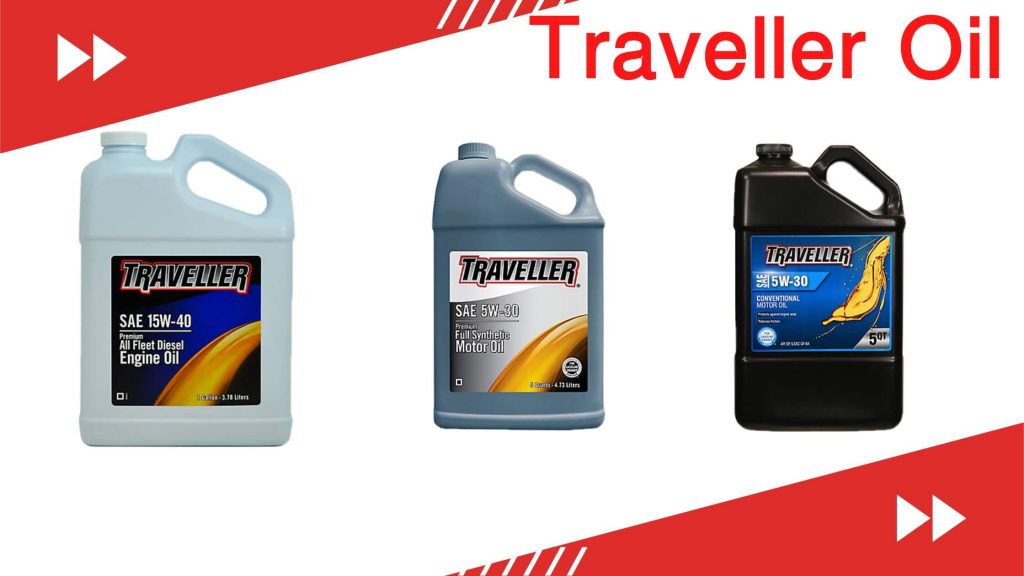
Traveller Oil Specs:
The key specification this kind of oil that makes it a brand are as follows:
- State-of-the-art additive system
- Advanced technology
- Standard viscosity Grade: 0W, 5W, 10W or 15W
- Availability in various formulas including: synthetic, Diesel, regular and high mileage.
Note: Some ingredients used to produce Traveller oil may be supplied from China. They always take care to make sure all ingredients meet the latest automotive specifications.
Who Is The Manufacturer Of Traveller Oil?
At first, I thought that Tractor Supply Company manufactures the Traveller oil. Later I discovered the truth and yes it is Warren Performance, the original manufacturer of this motor oil.
Warren distribution is a licensed and ISO 9001 certified Traveller motor oil manufacturer that has been producing since the 1970s. This company has a long reputed story of producing high-quality products.
Traveller oils are very synthetic, high-quality, and high- mileage with the regular formulation. They are ideal for vehicles like cars, trucks, or tractors.
This company supplies industrial lubricants and agricultural and private automotive fluids.
Where Is Traveller Oil Made? Is It Made From China?
Warren Distribution made Traveller automotive oil products in the USA. I mentioned earlier that Warren Distribution is the largest brand for lubricants in the Northern States.
Recently this company is linked with 45-countries customers and started to manufacture car oil, industrial oil, and other heavy-duty oils.
Their products and chemicals exceed API and other standards requirements. Some ingredients are sourced from China but it doesn’t mean that it is made in China.
Does Tractor Supply make Traveller Oil?
No, Tractor Supply Company, US-Based chain Company (founded in 1938), doesn’t make traveller oil. It is a different company that has its own manufacturing product lists.
Although they produce different products, they are renowned as a Warren Distribution-made Traveller automotive oil seller. Warren Distribution Inc. has been a supplier of automotive fluids to Tractor Supply Company for more than 15 years. .
Best Traveller Oil For Diesel Engine
- Premium All Fleet SAE 15W-40 Diesel Engine Oil Formula, 5 gal.
https://www.tractorsupply.com/tsc/product/traveller-premium-all-fleet-sae-15w-40-diesel-engine-oil-formula-5-gal
Traveller Premium All Fleet SAE 15W-40 is formulated with Diesel engine oil that meets all types of services for all diesel engines like low emission engines. It protects engines with EGR and old engines. It offers wear protection and oil consumption with soot control, preventing viscosity damage from trimming.
- Premium All Fleet SAE 15W-40 Diesel Engine Oil, 1 gal., 4 Per Case
https://www.tractorsupply.com/tsc/product/traveller-premium-all-fleet-sae-15w-40-diesel-engine-oil-1-gal-4-per-case
Traveller Premium All Fleet SAE 15W-40 performed similarly to the above one and formulated all services for all diesel engines. It keeps the oil pumping at a lower temperature and offers advanced safety from oxidative breakdown.
This one diminishes frictions to prolong engine life which will improve fuel economy. The high film forte performs better to stress of high temperature with high load performing situations.
Is Traveller Motor Oil A Worthy Solution For Engine Performance?
Yes, Traveller oil is worthy and great for the money. This oil is not very expensive and also provides a pleasing performance. Here are some reasons that make this oil bang for the bucks:
- Traveller oil protects cars and truck engines with any automotive gear.
- For tractors and trucks, this oil is budget-friendly.
- The traveller oils can increase the flow rate using the standard technology lubricants.
- It helps the modern farm elements to track long with less decay.
- The multi-graded SAE traveller oils perform in hot and cold situations smoothly.
- With this oil, you can run the vehicles for a long time without re-pouring any oils.
- They are widely available and can be picked from different retailers.
- Most importantly, it is produced by a reputable company that is extremely trustable.
Traveller Oil Vs Rotella: Key Differences
People always compare the Traveller oil and Rotella:
Traveller Oil Has A Warranty?
No, Traveller Oil doesn’t offer any warranty. According to the manufacturer, Warren Distribution, Traveller Oil producer company shall have no responsibility if the items become defective to the customer due to several reasons like wrong storage, infection, unfitting use, or misuse.
However, check their product’s rating track with customer reviews which assure you more than warranty.
My Final Opinion:
I have already mentioned that the Traveller oils are inexpensive and a worthy choice for money. You can get it regularly for around $20 per bottle.
I hope this blog post has cleared all your confusion which you might have searched online several times. Thank you very much Warren distribution.
Related Posts:

Similar Posts
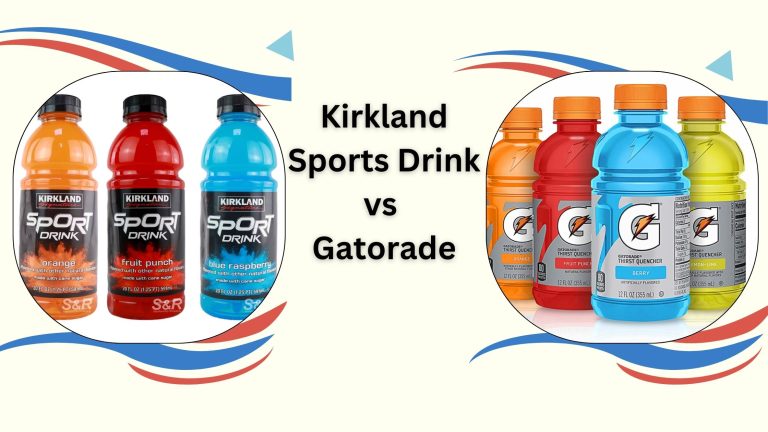
Kirkland Sports Drink vs Gatorade: Which One is Better for You?
Sports drinks have become a staple for athletes and fitness enthusiasts alike, offering a quick and efficient way to replenish fluids and electrolytes…
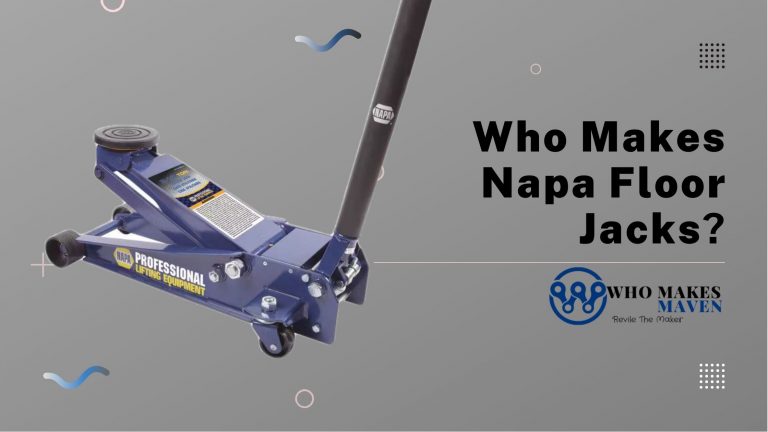
Who Makes Napa Floor Jacks? Lift the Vehicle You’re Working On
A floor jack is a necessity when working on your automobile or any vehicle. Even if you’re replacing a flat tire or switching…
![force traveller engine oil grade Who Makes Milestar Tires? [Why you choose this]](https://whomakesmaven.com/wp-content/uploads/2022/03/Who-Makes-Milestar-Tires-768x432.jpg)
Who Makes Milestar Tires? [Why you choose this]
Whether you want blissful cornering and safe and smooth driving, a perfect tire is a must-have item. If you are a vehicle owner,…

Who Makes Kirkland Jeans? Explained
Kirkland Signature is a private label brand owned by Costco. The company is known for its high-quality products at a low price, and…
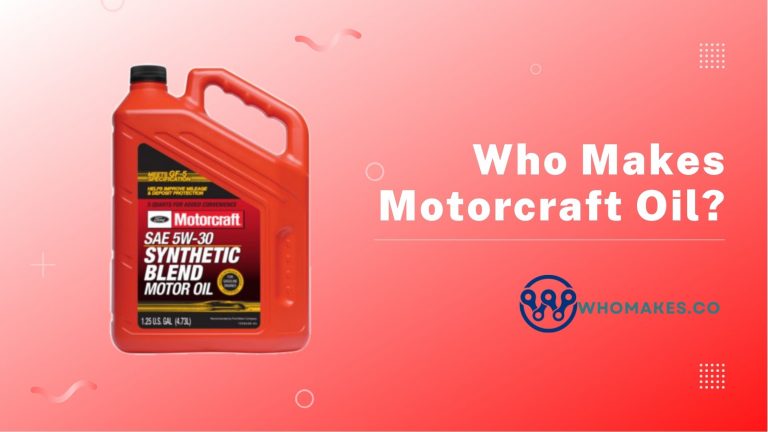

Who Makes Motorcraft Oil?
Looking for some premium quality oil to fuel up and tune your automobile engine? Then why not try out Motorcraft oil, everyone’s first…
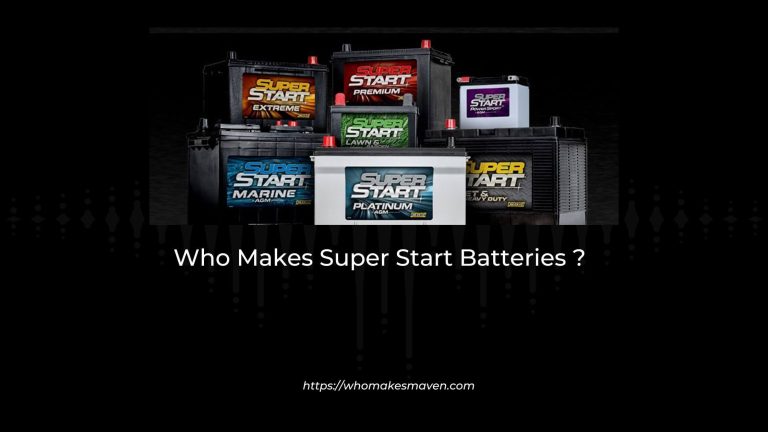
Who Makes Super Start Batteries? Learn Here!
Are you striving to find a top-notch battery for your vehicle that patents with the new technology and yet has the potential to…
Motor Oil Grades And Classifications Explained
Motor oil grades indicate the oil’s viscosity. Classifications include single-grade oils and multi-grade oils, such as 10W-40.
Understanding motor oil grades and classifications is crucial for ensuring your vehicle’s engine runs smoothly and efficiently. Motor oil, often described as the lifeblood of an engine, requires precise selection to match the manufacturer’s specifications and ambient temperature conditions. The grading system, established by the Society of Automotive Engineers (SAE), measures oil viscosity – its resistance to flow.
Single-grade oils are designed for specific temperature ranges, making them suitable for certain climates or seasons. Multi-grade oils, however, offer a wider range of protection, functioning effectively across various temperatures thanks to viscosity modifiers. Choosing the right oil grade maximizes engine performance, prolongs its life, and can lead to better fuel economy, ensuring your vehicle is well-cared for in any driving conditions.
Introduction To Motor Oil
An introduction to motor oil unlocks the secrets of what keeps engines running smoothly . This vital fluid does more than just lubricate; it serves as the lifeblood of automotive performance. Grasping its importance and understanding its classifications ensures that engines operate at their peak. Let’s delve into the pivotal role of motor oil and uncover the significance of selecting the right grade for your vehicle.
Role Of Motor Oil in Engines
Imagine a bustling city. Now picture motor oil as the traffic controller of an engine. It manages heat and reduces friction , maximising engine efficiency. Here’s how it helps:
- Lubricates engine parts to prevent wear and tear.
- Helps cool engine components by transferring heat away.
- Protects against corrosion , keeping engine parts clean.
- Improves sealing , which maintains engine pressure.
Importance Of Correct Oil Grade
Choosing the correct motor oil grade is not just important; it’s critical for engine health . The right oil:
- Matches engine design , complementing its specific needs.
- Ensures optimal performance , regardless of weather conditions.
- Prevents premature wear , extending engine life.
- Aids in fuel efficiency , saving money over time.
Think of motor oil grades as shoe sizes; the right fit is paramount. Using the wrong oil can lead to reduced lubrication and potential engine damage. Always check the vehicle’s manual for the manufacturer’s recommendation.
The Basics of Motor Oil Viscosity
Motor oil viscosity might sound complex, but it’s simply a measure of oil’s resistance to flow. Like the thickness of honey versus water. In cars, the right viscosity keeps engines running smoothly. Let’s dive into what this really means for your vehicle.
Defining Viscosity
Viscosity is key to engine performance and protection. It determines how well the oil pours at different temperatures . Thick oils have high viscosity , and thin oils have low viscosity .
How Temperature Affects Viscosity
Temperature changes the way motor oil behaves. Warm oil flows faster ; cold oil flows slower .
- High temperatures make oil thin out.
- Low temperatures cause oil to thicken.
Choosing the right oil for your climate is crucial. It ensures your engine starts easily and is protected in all weathers.
Understanding Oil Labels
Oil containers have codes like “5W-30” or “10W-40” . These tell you the viscosity of the oil in cold and hot temperatures.
Choose oil with the right “W” number for winter temperatures. The second number is for your engine’s normal running temperature.
Understanding Oil Grade Nomenclature
Choosing the right motor oil for your vehicle is crucial. Oil grades look like a code on your oil container. This code tells you the oil’s viscosity. Viscosity means how thick the oil is and how it flows at different temperatures. Understanding this code helps keep your engine running smoothly.
Reading The Numbers and Letters
The numbers and letters on oil containers are not random. They are a guide to the oil’s performance . Let’s break them down:
- The first number stands for the oil flow at cold temperatures.
- The letter ‘W’ means winter, not weight as some think.
- The second number shows the oil flow at engine operating temperatures.
For example, 10W-30 oil has a viscosity of 10 in the cold and 30 at normal engine heat.
Single Vs. Multi-grade Oils
Motor oils can be single or multi-grade. What does that mean?
Multi-grade oils are more versatile . They flow well in cold and keep their thickness when it is hot.
Sae Classification System
The SAE Classification System is vital in understanding motor oil and its performance. This system sets the standards for motor oils based on their viscosity, which is crucial for engine protection and efficiency. Knowing the SAE grade helps ensure that you choose the right oil for your vehicle’s engine.
Origins Of the Sae Standards
The Society of Automotive Engineers (SAE) created the classification system. Its purpose is to ensure that all motor oils meet specific requirements for viscosity. These standards began in the early 1900s and continue to evolve with automotive technology.
Deciphering Sae Oil Grades
SAE grades relate to oil thickness. This thickness changes with temperature. For example, a label with ‘5W-30’ has two important pieces of information:
- 5W : The ‘W’ stands for winter, not weight. It tells the oil’s flow at cold temperatures.
- 30 : This number indicates how the oil flows at 100 degrees Celsius, representing engine operating temperatures.
Here’s a simple explanation of common SAE grades:
Selecting an SAE grade that matches your vehicle’s manual is key. Always follow these guidelines to keep your engine happy.
Api Service Categories
Understanding the letters and numbers on motor oil containers is crucial for vehicle maintenance. They tell us about the oil’s performance level, viscosity, and the engine type it’s suited for. The API Service Categories are sets of specifications created by the American Petroleum Institute (API) to classify oils by their performance. API categories ensure that the oil meets certain standards and is safe for specific engines.
Api Ratings for Gasoline Engines
Gasoline engines require oils that keep them clean and protect them at high temperatures. The API ratings for gasoline engines have “S” prefixes , which stand for “Service.” Modern ratings typically start with “SN” and go all the way back to “SA.” Each letter upgrade signifies improvements in oil properties such as energy conservation, high-temperature deposit protection, and wear protection. Engines made after 2000 generally require oils rated “SJ” or newer. It is critical to check the vehicle’s manual for the manufacturer’s recommended API grade.
Api Ratings for Diesel Engines
For diesel engines, the oil must endure extreme pressure and combat soot contamination. Diesel oil ratings have a “ C” prefix , which means “commercial.” Current standards include “CK,” “CJ,” and “CI,” with “CK-4” being the latest and providing the best performance. It can handle high temperatures, reduce emissions, and extend engine life. Operators should ensure that they choose an oil with an API rating that matches their engine’s specifications for optimal performance and longevity.
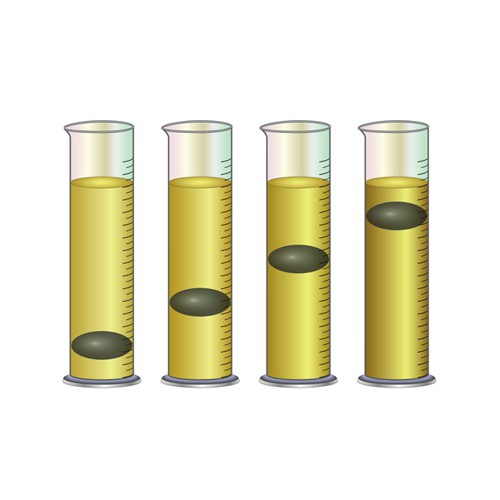
Credit: www.exol-lubricants.com
Ilsac Standards and Certification
The lifeblood of your vehicle’s engine is its motor oil, a pivotal component that demands keen attention to its grades and classifications. Among the various standards that govern motor oil quality, ILSAC (International Lubricant Standardization and Approval Committee) Standards stand out significantly. They play a crucial role in ensuring that the motor oil you pour into your engine meets the strict performance and efficiency criteria suited for modern engines. Let’s dive into understanding the Goals of ILSAC and what it means to have an ILSAC Certification.
Goals Of Ilsac
ILSAC’s primary mission revolves around three pivotal aspects:
- Conservation: Fuel efficiency is a top priority, aiming to reduce oil consumption and carbon emissions.
- Protection: It ensures that motor oils protect against wear, extending engine life.
- Compatibility: Motor oils must be compatible with engine components and emission systems.
What Ilsac Certification Means
An oil with ILSAC Certification has passed rigorous testing and meets stringent quality benchmarks.
When selecting motor oil, the ILSAC starburst symbol on the container signifies compliance with current ILSAC standards. This certification guarantees that your engine runs smoothly, cleanly, and efficiently.
European Oil Standards
Understanding motor oil grades isn’t just about numbers and letters. It’s crucial for your car’s health. European cars have their own set of oil standards. These standards ensure that oil meets certain specifications. Let’s look at these European Oil Standards closer.
Acea Classification
Europe uses the ACEA classification to define oil performance. ACEA stands for the Association des Constructeurs Européens d’Automobiles. It’s a group of European car makers.
ACEA classifications are split into categories:
- A/B: For passenger cars with petrol and diesel engines.
- C: For catalyst compatible oils.
- E: For heavy-duty diesel engines.
Each category has several grades, like A1/B1 or C3. These grades tell you about:
Oem Specific Standards
Car makers sometimes set oil standards beyond ACEA. These are OEM specific standards .
OEM stands for Original Equipment Manufacturer. Examples include:
- Volkswagen uses standards like VW 502 00.
- Mercedes-Benz uses MB Approval 229.5.
- BMW has Longlife-01.
These standards address unique engine designs. They ensure the oil works perfectly with your car’s engine. Always use the oil that meets your car’s OEM standards. It keeps your engine running smoothly.

Credit: www.energy.gov
Selecting The Right Motor Oil
Discovering the optimal motor oil for your vehicle is like a puzzle. Do you know that using the improper grade could harm your engine? To achieve peak performance and ensure longevity, selecting the right oil is crucial. Let’s dive into how you can match the oil to your engine’s type, consider the climate and driving habits, and interpret your vehicle’s owner’s manual for the best choice.
Matching Oil to Engine Type
Engines are diverse, and the motor oil that works wonders for one may spell trouble for another. Whether you have a high-performance sportscar or a heavy-duty truck, the engine type dictates the oil you need. Use the list below to align your oil selection with your engine’s requirements:
- Turbocharged and high-performance engines often require full-synthetic oil.
- Older, high-mileage engines benefit from synthetic blends or high-mileage oil.
- General-use vehicles typically work well with conventional oil.
Considerations For Climate and Driving Conditions
Weather extremes affect how oil performs. The wrong oil can turn too thin or too thick in severe temperatures, impacting engine protection. Assess your driving conditions using the guide below:
Reading Vehicle Owner’s Manuals
The instruction book that came with your car, the owner’s manual, is your best friend. It eliminates the guesswork. Inside, you’ll find the manufacturer’s oil recommendations tailored to your specific model. Note the recommended oil viscosity, oil type , and service intervals. Here’s a quick checklist:
- Locate the motor oil section in your manual.
- Identify the recommended oil viscosity.
- Determine whether synthetic, synthetic blend, or conventional oil is advised.
- Note the preferred service timeline.
The Impact of Wrong Oil Grade Usage
Using the right motor oil grade is like feeding your car the best food. Get it wrong, and trouble follows. Here’s how the wrong oil grade can hurt your engine.
Engine Wear and Tear
Engines are complex. Every part needs smooth movement. Wrong oil grades can cause friction. This friction wears parts faster. Imagine your engine’s parts grinding. Not good, right?
Over time, extra wear means more repairs. That’s money out of your pocket. A sludgy engine dying early could be the sad result. That’s why choosing the correct oil is critical.
Read More: Engine Oil Viscosity Grades And Engine Oil Viscosity Chart
Fuel Efficiency and Performance
Think of your engine as an athlete. The right oil is like a balanced diet for peak performance. Wrong oil equals poor performance. Your engine struggles. It gulps more fuel. That’s more trips to the pump .
- Your gas mileage drops.
- Engine doesn’t deliver full power.
Correct oil helps your engine run efficiently. It’s like getting an easy win. Your car feels peppier, and your wallet stays fatter.
Synthetic Vs. Conventional Oils
Choosing the right motor oil can be confusing. Synthetic and conventional oils are the two main options car owners consider. Each has its benefits that suit different driving conditions and engine types. This section explains the key differences and helps drivers make informed choices.
Differences In Performance
Synthetic oil outperforms conventional oil in several areas :
- Temperature resistance – Synthetics handle extreme temps better.
- Engine cleanliness – Synthetics reduce sludge and buildup.
- Longevity – Synthetics last longer, requiring fewer changes.
- Fuel efficiency – Synthetics can offer better fuel economy.
Conventional oil, derived from crude oil, is less refined. It’s best for simple engine designs and lighter-duty use.
Understanding Blended Oils
Blended oils combine synthetic and conventional oils. They offer a middle ground:
Blended oils are perfect for drivers seeking enhanced performance without the full cost of synthetics.
Advancements In Motor Oil Technology
As the heart of your vehicle, the engine deserves premium care. Motor oils have evolved. They now offer better protection. They extend the engine’s life. High-tech engines need advanced oils. Let’s dive into these innovations.
Innovations In Synthetic Oils
Synthetic oils have transformed engine performance. They reduce wear. They can withstand extreme temperatures. Their molecular structure is engineered. It ensures optimal lubrication.
These oils keep engines clean. They fight sludge and deposits. Synthetic oils flow better in cold weather. They protect better in hot weather.
Future Trends in Engine Lubrication
The future of motor oil is bright. Eco-friendly options are on the rise.
We will see oils that save fuel. They will last longer. They will reduce emissions. Nanotechnology will play a role. It will create super-lubricants.
- Biodegradable motor oils
- Long-life oils with extended intervals
- Nanoparticle additives for reduced friction (Read More: Are Oil Additives Safe for Your Engine ?)
The engine lubrication game is changing. Stay tuned for amazing breakthroughs.

Credit: m.youtube.com
Frequently Asked Questions of Motor Oil Grades and Classifications Explained
What do the different grades of engine oil mean.
Different grades of engine oil indicate their viscosity, which affects performance at various temperatures. The first number represents cold-weather viscosity, the “W” stands for winter, and the second number indicates high-temperature viscosity. Higher grades ensure better lubrication in specific climates.
How Do You Classify Engine Oil?
Engine oil is classified based on viscosity and service rating. Viscosity grades dictate oil flow at specific temperatures, while service ratings indicate oil quality and engine protection levels set by API or ACEA standards.
What Do the Letters Mean for Engine Oil?
The letters on engine oil represent its viscosity grade, which indicates the fluid’s thickness and temperature performance as certified by the SAE (Society of Automotive Engineers).
Is 5w30 Thicker Than 10w30?
No, 5W30 is not thicker than 10W30. The “5w” indicates a lower viscosity in colder temperatures, making 5w30 thinner than 10w30 at engine start-up temperatures.
Understanding motor oil grades and classifications is crucial for optimal vehicle performance. Selecting the right lubricant ensures engine protection and efficiency, which are essential for longevity. Remember, choose quality oils that meet your car’s specific requirements. Keep engines running smoothly; let informed choices drive your motor oil selection.
Stay knowledgeable, drive confidently.
Related Posts
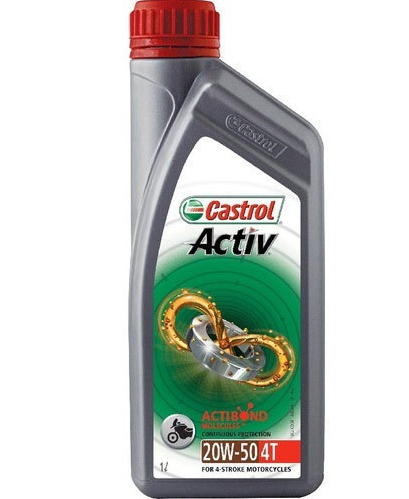
What Are The 4 Types of Engine Oil?
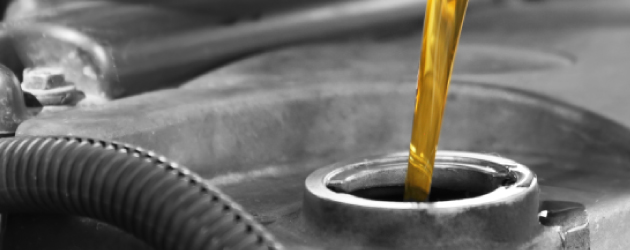
Three Types of Engine Oils And When to Use Them

- CREATE AN ACCOUNT
- Boat Cover Finder
- Bimini Top Finder
- Boat Propeller Finder
- Engine Parts Finder
- Anchor & Dock
- Watersports
- Clothing and Footwear
- Engine Parts
- Cabin and Galley
- Covers and Biminis
- Electronics
- Paint and Maintenance
- Pumps and Plumbing
- Anchor Chains & Ropes
- Boat Fenders
- Boat Mooring
- Boat Protection
- Dock Storage & Protection
- Ladders, Steps, & Platforms
- Top Sellers

- Fishing Rods
- Fishing Reels
- Fishing Rod & Reel Combos
- Fishing Tools & Tackle Boxes
- Fishing Line
- Fly Fishing
- Fishing Bait & Fishing Lures
- Fishing Rod Holders & Storage Racks
- Fish Finders, Sounders & Sonar
- Trolling Motors
- Fishing Nets
- Fishing Downriggers & Acessories
- Fishing Outriggers & Acessories
- Fishing Kayaks
- Fish Cleaning Tables

- Inflatable Rafts
- Paddle Boarding
- Paddles & Oars
- Wakeboard, Wakesurf & Ski
- Wakeboard Towers
- Tow Ropes & Handles
- Life Jackets & PFDs
- Snow Sports
- Roof Racks, Carriers, Dollies

Men's Clothing
- Accessories
Men's Footwear
- Atheltic Shoes
- Water Shoes
Women's Clothing
- Dresses & Skirts
Women's Footwear
- Fuel Systems
- Sacrificial Anodes & Zincs
- Generator Parts
- Inflatable Boats
- Propeller Parts & Accessories
- Boat Manuals
- PWC Parts & Accessories

- Fishing Boat Seats
- Offshore Boat Seats
- Ski Boat Seats
- Pontoon Boat Seats & Furniture
- Boat Seat Pedestals & Hardware
- Boat Seats by Manufacturer
- Boat Tables & Hardware
- Boat Seat Covers
- Boat Seat Vinyl
- Floating Boat Cushions

- Barbeque Grills
- Boat Drink Holders
- Cabin Accessories & Hardware
- Boat Ventilation
- Interior & Cabin Lighting
- Marine Teak Products
- Carbon Monoxide & Smoke Detectors
- Binoculars & Telescopes

Boat Bimini Tops
- Bimini Top Accessories
- Pontoon Bimini Tops
- Other Biminis
- RV & Trailer Covers
- Boat Shrink Wrap & Accessories
- Boat Shelters
Boat Covers
- Boat Cover Accessories
- Boat Lift Canopy Covers
- Other Covers
- Boat Wiring & Cable
- Marine Batteries & Accessories
- Marine DC Power Plugs & Sockets
- Marine Electrical Meters
- Boat Lights
- Marine Electrical Panels & Circuit Breakers
- Power Packs & Jump Starters
- Marine Solar Power Accessories
- Marine Electrical Terminals
- Marine Fuse Blocks & Terminal Blocks
- Marine Switches
- Shore Power & AC Distribution

- Marine Audio & Video
- GPS Chartplotters & Accessories
- Electronic Navigation Charts & Software
- Digital Instruments
- Display Mounts
- VHF Radios & Communication
- Marine Radar
- Auto Pilot Systems
- Action Cameras

- Fiberglass & Epoxy Boat Repair
- Boat Paint & Varnish
- Marine Adhesives, Sealant, & Caulking
- Marine Engine Maintenance
- Boat Cleaners & Waxes
- Boat Cleaning Supplies

- Fresh Water Boat Systems
- Bilge Pumps
- Marine Plumbing Parts
- Wash Down Pumps
- Livewell Aerator Pumps & Live Bait Wells
- Toilet & Waste Pumps
- Marine Pump Replacement Parts

- Tires, Rims, & Hub Kits
- Boat Trailer Winches
- Boat Motor Supports & Transom Savers
- Boat Trailer Guides & Rollers
- Boat Trailer Fenders
- Boat Trailer Lights
- Boat Trailer Hardware
- Boat Trailer Jacks
- Boat Trailer Brakes & Axles
- Boat Trailer Tie Downs
- Couplers, Mounts, Hitches, & Locks

- Boat Deck Harware
- Marine Nuts, Bolts, & Screws
- Boat Handles, Pulls, & Rings
- Prop Nut Kits & Hardware
- Boat Cabin Hardware
- Marine Fasteners
- Boat Windshield Parts
- Boat Tubing & Rails
- Boat Mirrors
- Marine Tools & Tool Kits
- Boat Lettering

- Women's Clothing Deals
- Men's Clothing Deals
- Fishing Deals
- Anchor & Dock Deals
- Electrical Deals
- Electronics Deals
- Paint & Maintenance Deals
- Pumps & Plumbing Deals
- Boat Seats Deals
- Trailering Deals
- Camping & RV Deals
- Dealer Login

- Forums Login

- Search forums
- Engine Repair and Maintenance
- Force & Chrysler Outboards
Force 125 fuel/oil mix ratio
- Thread starter joet5point9
- Start date Mar 22, 2009
joet5point9
- Mar 22, 2009
Hello all, My name is Joe, I am new here. I just bought a 1988 bayliner bass with a force 125 on it. The force runs like a dream which was a pleasant surprise being that i bought this boat at a federal auction. I was just curious what the best fuel to 2 stroke oil ratio is for these motors. I Have been running about 32 ounces for 10 gallons. thanks -joe
Bigprairie1
- Mar 23, 2009
Re: Force 125 fuel/oil mix ratio thanks alot!
Motor Oil Viscosity Grades
What does the sae viscosity rating on your motoroil bottle mean how do they come up with this rating . . .really.
Most of the time when viscosity is explained words are used that are too technical for the average person to quickly grasp. This leaves them still wondering what the viscosity numbers really mean on a bottle of motor oil. Simply put, viscosity is the oil's resistance to flow or, for the layman, an oil's speed of flow as measured through a device known as a viscometer. The thicker (higher viscosity) of an oil, the slower it will flow. You will see oil viscosity measurement in lube articles stated in kinematic (kv) and absolute (cSt) terms. These are translated into the easier to understand SAE viscosity numbers you see on an oil bottle.
OK . . .What does a 5W-30 do that an SAE 30 won't? When you see a W on a viscosity rating it means that this oil viscosity has been tested at a Colder temperature. The numbers without the W are all tested at 210° F or 100° C which is considered an approximation of engine operating temperature. In other words, a SAE 30 motor oil is the same viscosity as a 10w-30 or 5W-30 at 210° (100° C). The difference is when the viscosity is tested at a much colder temperature. For example, a 5W-30 motor oil performs like a SAE 5 motor oil would perform at the cold temperature specified, but still has the SAE 30 viscosity at 210° F (100° C) which is engine operating temperature. This allows the engine to get quick oil flow when it is started cold verses dry running until lubricant either warms up sufficiently or is finally forced through the engine oil system. The advantages of a low W viscosity number is obvious. The quicker the oil flows cold, the less dry running. Less dry running means much less engine wear.
Obviously, cold temperature or W ratings are tested differently than regular SAE viscosity ratings. Simply put, these tests are done with a different temperature system. There is a scale for the W , or winter viscosity grades and, depending on which grade is selected, testing is done at different temperatures. See the Tables to the right below for more information.
Basically to determine non-winter grade viscosity using a viscometer a measured amount of oil at 100° C is allowed to flow through an orifice and timed. Using a table they determine SAE viscosity based on different ranges. Thicker or heavy viscosity oils will take longer to flow through the orifice in the viscometer and end up in higher number ranges such as SAE 50 or SAE 60 for example. If an oil flows through faster being thinner/lighter then it will wind up in a low number range such as SAE 10 or SAE 20 for example. Occasionally it is possible for an oil to barely fall into one viscosity range. For example, an oil is barely an SAE 30 having a time that puts it on the very low side. Then another oil is timed to be an SAE 20 on the high side not quite breaking into the SAE 30 numbers. Technically speaking these oils will be close to the same viscosity even though one is an SAE 20 and the other an SAE 30. But you have to draw the line somewhere and that's how the SAE system is designed. Another system takes more accurate numbers into account known as cSt abbreviated for centistokes. You'll see these numbers used often for industrial lubricants such as compressor or hydraulic oils. The table at the right, SAE Viscosity Chart (High Temp) , shows the equivalents for cSt and SAE viscosity numbers. You'll see the ranges for cSt compared to SAE numbers. An oil that is 9.2 cSt will be nearly the same viscosity as an oil that is 9.3 cSt, yet one is an SAE 20 and the other is an SAE 30. This is why the cSt centistokes numbers more accurately show oil viscosity.
Now if you look at the table labeled Winter or "W" Grades , you can get valuable information on how the W or winter grade viscosities are measured. Basically, as shown by the chart, when the oil is reduced to a colder temperature it is measured for performance factors. If it performs like a SAE 0 motor oil at the colder temperature, then it will receive the SAE 0W viscosity grade. Consequently, if the motor oil performs like a SAE 20 motor oil at the reduced temperatures (the scale varies - see the chart), then it will be a SAE 20W motor oil.
If a motor oil passes the cold temperature or W (winter grade) specification for a SAE 15W and at 210° F (100° C) flows through the viscometer like a SAE 40 motor oil, then the label will read 15W-40. Getting the picture? Consequently, if the motor oil performs like a SAE 5 motor oil on the reduced temperature scale and flows like a SAE 20 at 210° F (100° C), then this motor oil's label will read 5W-20. And so forth and so on!
I can't tell you how many times I have heard someone, usually an auto mechanic, say that they wouldn't use a 5W-30 motor oil because it is, "Too thin." Then they may use a 10W-30 or SAE 30 motor oil. At engine operating temperatures these oils are the same. The only time the 5W-30 oil is "thin" is at cold start up conditions where you need it to be "thin."
So how do they get a motor oil to flow in the cold when it is a thicker viscosity at 210° F? The addition of Pour Point Depressant additives (VI) keep the paraffin in petroleum base oils from coalescing together when temperature drops. Pour Point Depressants can keep an oil fluid in extreme cold temperatures, such as in the arctic regions. We will not go into Pour Point Depressing additives at this time except to say they are only used where temperatures are very extreme to keep the motor oil from becoming completely immobilized by the cold temperature extreme. For now we will just discuss the Viscosity Improvers (VI) additives.
Why don't we just use a SAE 10 motor oil so we can get instant lubrication on engine start up? The reason is simple: it would be a SAE 10 motor oil at 210° F! The lower the viscosity, the more wear will inevitably occur. This is why it is best to use the proper oil viscosity recommended by the auto manufacturer as it will protect hot and at cold start ups. Obviously a 10W-10 motor oil won't have the film strength to prevent engine wear at full operating temperature like a 5W-20, 10W-30 or 5W-30 motor oil for example.
The VI additives have the effect of keeping the oil from thinning excessively when heated. The actual mechanics of this system are a little more complex in that these additives are added to a thinner oil so that it will be fluid at a cold temperature. The VI additives then prevent thinning as the oil is heated so that it now can pass the SAE viscosity rating at 210. For example; if you have a SAE 10 motor oil it will flow like a 10W at the colder temperature. But at 210 degrees it will be a SAE 10 giving us a 10W-10 or SAE 10 viscosity rating. Obviously this is good at cold start up, but terrible at engine operating temperature especially in warmer climates. But by adding the VI additives we can prevent the oil from thinning as it is heated to achieve higher viscosity numbers at 210 degrees. This is how they make a petroleum based motor oil function for the 10W-30 rating. The farther the temperature range, like with a 10W-40, then more VI additives are used. With me so far? Good, now for the bad news.
Drawbacks of Viscosity Improving additives Multi-grade motor oils perform a great service not being too thick at cold startup to prevent engine wear by providing more instantaneous oil flow to critical engine parts. However, there is a draw back. These additives shear back in high heat or during high shear force operation and break down causing some sludging. What's worse is once the additive begins to be depleted the motor oil no long resists thinning so now you have a thinner motor oil at 210 degrees. Your 10W-30 motor oil can easily become a 10W-20 or even a SAE 10 (10W-10) motor oil. I don't have to tell you why that is bad. The more VI additives the worse the problem which is why auto manufacturers decided to steer car owners away from motor oils loaded with VI additives like the 10W-40 and 20W-50 viscosities.
The less change a motor oil has from high to low temperatures gives it a high Viscosity Index . Synthetic motor oils that are made from Group IV (4) PAO base stocks have Viscosity Indexes of more than 150 because they are manufactured to be a lubricant and don't have the paraffin that causes the thickening as they cool. But petroleum based motor oils (Group I (1) & II (2)) usually have Viscosity Indexes of less than 140 because they tend to thicken more at the colder temperature due to the paraffin despite the addition of Viscosity Improving additives. The higher the Viscosity Index number the less thinning and thickening the motor oil has. In other words, high number good, low number bad. Low numbers thicken more as they cool and thin more hot. You see these Viscosity Index ratings posted on data sheets of motor oils provided by the manufacturer.
As already mentioned, VI improving additives can shear back under pressure and high heat conditions leaving the motor oil unable to protect the engine properly under high heat conditions and cause sludging. Also there is a limit to how much viscosity improving additives can be added without affecting the rest of the motor oil's chemistry. Auto manufacturers have moved away from some motor oils that require a lot of viscosity improving additives, like the 10W-40 and 20W-50 motor oils, to blends that require less viscosity additives like the 5W-20, 5W-30 and 10W-30 motor oils. Because stress loads on multi viscosity motor oils can also cause thinning many racers choose to use a straight weight petroleum racing motor oil or a PAO based Synthetic which do not have the VI additives. But only the Group IV (4) PAO based synthetics generally don't need VI additives. Read on to learn why:
What about synthetic motor oils? Do they need Viscosity Additives? Group IV (4) and Group V (5) base oil (synthetics) are chemically made from uniform molecules with no paraffin and generally don't need Viscosity Additives. However, in recent years Group III (3) based oils have been labeled "synthetic" through a legal loophole. These are petroleum based Group II (2) oils that have had the sulfur refined out making them more pure and longer lasting. Group III (3) "synthetic" motor oils must employ Viscosity Additives being petroleum based.
Group V (5) based synthetics are usually not compatible with petroleum or petroleum fuels and have poor seal swell. These are used for air compressors, hydraulics, etc. It's the Group IV (4) PAO based synthetics that make the best motor oils. They are compatible with petroleum based oils and fuels plus they have better seal swell than petroleum. Typically PAO based motor oils use no Viscosity Index additives yet pass the multi-grade viscosity requirements as a straight weight! This makes them ideal under a greater temperature range. One advantage of not having to employ Viscosity Improving additives is having a more pure undiluted lubricant that can be loaded with more longevity and performance additives to keep the oil cleaner longer with better mileage/horsepower.
Modern motor oils are a marvel of chemistry to be sure. There are a lot more additives in play than the few mentioned here. The API ( American Petroleum Institute - sets oil standards in the U.S .), ILSAC ( International Lubricants Standardization and Approval Committee - U.S. & Japanese auto/truck manufacturers standards for motor oil ) and ACEA ( Association des Constructeurs Europeens d'Automobiles - European auto/truck manufacturer oil standards ) are some of the different organizations you will see providing rating information on the service grades of different motor oils. Plus there are some auto manufacturers like Mercedes, BMW and Volkswagen that have unique oil standards for their cars. You need to read your owner's manual clearly to be sure you are using the proper oil for your application.
Some of these organizations, such as the API and ILSAC , have reduced friction modifier amounts in order to extend the life of catalytic converters and reduce pollution. These will increase wear but will be still within the "acceptable wear" range. Because of the increased wear and expense of licensing these oils some companies will not certify for API & ILSAC in order to achieve a higher level of performance. People with older engines that do not have roller cams find these oils especially attractive to maintain a reduced level of engine wear. AMSOIL only has 5 motor oils certified for the API & ILSAC for this reason (the four XL-7500 Branded motor oils and the semi-synthetic 15W-40 PCO). The rest of the nearly 30 synthetic motor oils are not certified in order to maintain the higher levels of friction modifier to maintain the enhanced level of performance necessary for their targeted market. In other words, the less expensive motor oils made by AMSOIL are API & ILSAC certified while the high end more expensive performance motor oils are not. One reason companies like AMSOIL and Mobil are at odds with the reduced friction modifier standards is they don't take into consideration the reduced volatility of PAO based motor oils which leads to much less pollution and thereby less problems for the catalytic converter. Even with the full wear preventing additives these oils do not produce the pollution of petroleum motor oils. For this reason AMSOIL has left the friction modifier levels high and skips certification for these higher performing motor oils. For more information read these: How to read viscosity information on a data bulletin (data bulletin viscosity numbers explained) Motor Oil Quality Progresses With Engine Technology (Good information on motor oil service ratings) and Why does Motor Oil Deteriorate?

Passenger Vehicles
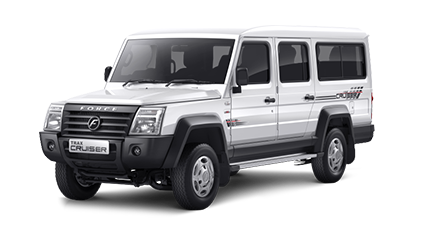
Delivery Vans
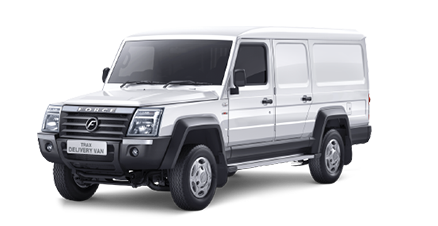
School Buses
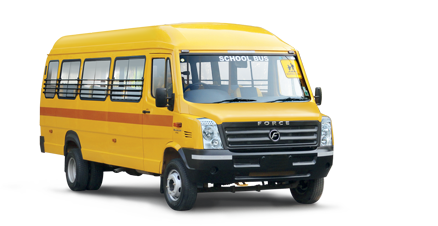
Special Application
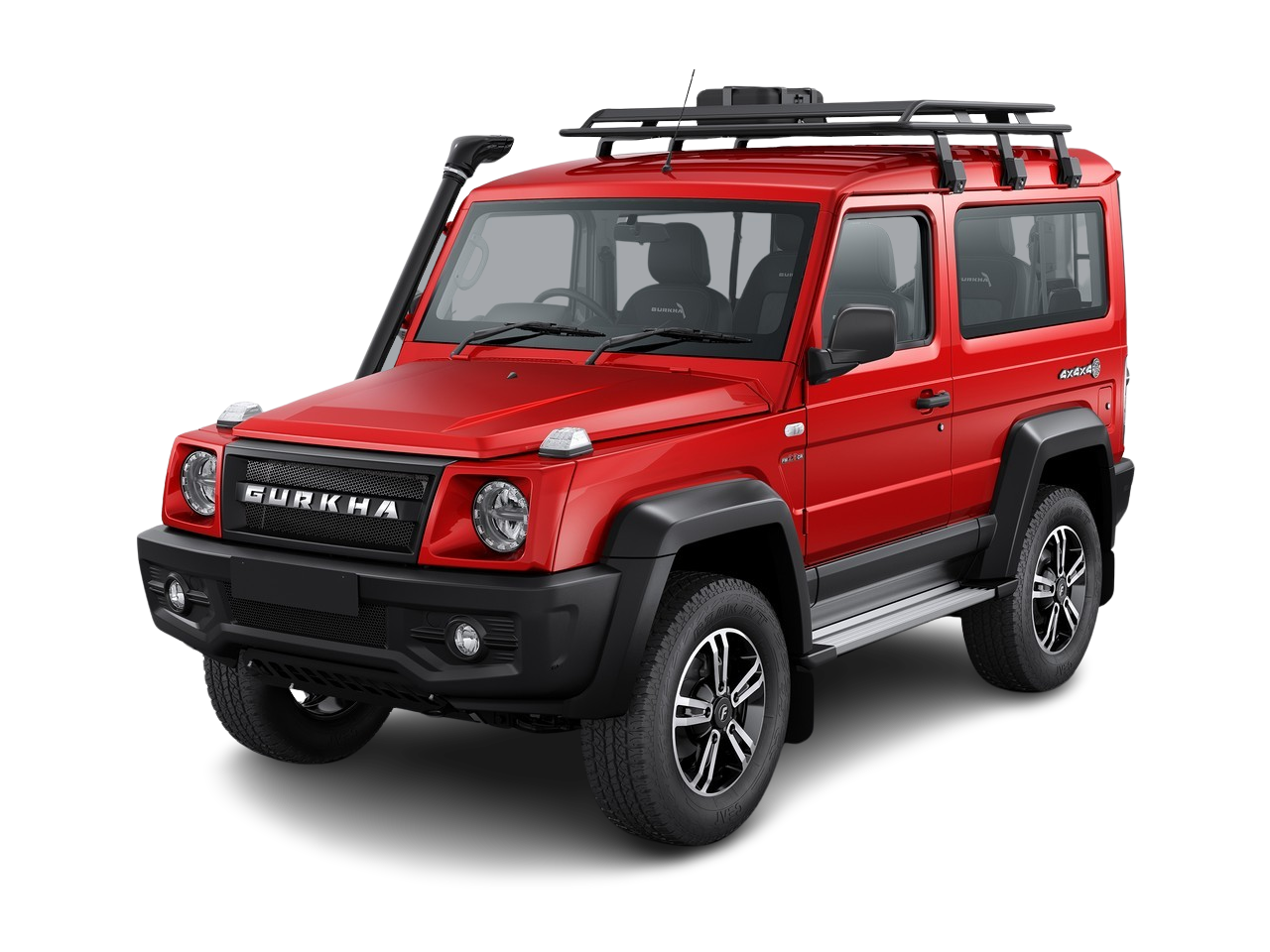
- Prices exclude TCS, registration charges & taxes which be applicable subject state regulations, Kindly contact nearest dealership for more details.

IMAGES
VIDEO
COMMENTS
TRAVELLER 3350WB. SALIENT FEATURES. Mercedes derived, Highly Powerful and fuel efficient FM 2.6 CR Power train ... ENGINE; Engine: FM 2.6 CR ED: Emission: S-VI Stage 2: Type: 4 Cylinder, Common Rail , DI TCIC: Bore x Stroke (mm) 90.9 x 100: Displacement: 2596 cc: Max Output: ... Force Motors is a fully vertically integrated automobile company ...
I did read that any engine oil SAE 15W-40 would do fine, but I got the real stuff. FRONT AXLE: Grade = API GL-4, SAE = 80W/90, Qty = 8.2l. Bought Traveller, SAE = 80W-90, Multi Purpose Gear Oil. On the back it says it's suitable for API Service GL-5, which I believe is more severe than GL-4. The Operator's Manual also says that MAHINDRA ...
Nov 13, 2023. #20. Just picked up 5 gallon bucket of Traveller HD30 Conventional SP rated motor oil on clearance at TSC. Will use it for mower, pressure washer, top offs on a couple cars, etc (for the next decade or so!).
Product: Traveller Premium Full Synthetic Motor Oil. Viscosity Grade: SAE 5W-20. Labeled: API SP/ILSAC GF-6A. Manufactured Exclusively For: Tractor Supply Company, Brentwood, TN. Purchased at: Monroe Township, NJ. Date of purchase: 3/28/2021.
54 posts · Joined 2009. #1 · Oct 7, 2009. Who makes Traveller oil (sold at Tractor Supply). I did some searching, but couldn't find a definite answer. I heard shell, which i doubted, and then I heard Old World Industries, who also make peak anti-freeze. Traveller Premium 15w40 is rated up to CI-4. I've also read that CI-4 is better for pre ...
The new Force Traveller 3350 van is equipped with an FM 2.6 CR ED, SCR technology diesel engine with a displacement of 2596 CC and coupled with a 5-speed transmission. Before buying this vehicle you need to check the latest Force traveller 3350 9, 12, 13 and 14 seater van specs. Force Traveller 3350 van also gives an outstanding diesel fuel ...
Product: Traveller Premium Full Synthetic Motor Oil Viscosity Grade: SAE 5W-20 Labeled: API SP/ILSAC GF-6A. The results of the tests conducted on this sample meet the SAE J300 specifications for the SAE Viscosity Grade listed on the product label, and are consistent with the listed API Service Categories. Full Report
Any dealer will have case ih 30wt low ash oil. Or 15w40 in winter if starting hard in cold. I don't think anyone will say don't use it. However sometimes it boils down to availability and personal preference. YOU do what YOU want. For what it's worth I just bought 5 gallon of case ih oil from dealer for $65.00.
12,190. Location. San Francisco Bay Area. Feb 24, 2019. #1. Just happened to be near a TSC and had a look. They had a limited selection of Pennzoil, Mobil 1, Valvoline, etc. The bulk of the shelf space was for their Traveller (two l's) house brand. The interesting thing was what looked like a manufacturing date.
Warren distribution is a licensed and ISO 9001 certified Traveller motor oil manufacturer that has been producing since the 1970s. This company has a long reputed story of producing high-quality products. Traveller oils are very synthetic, high-quality, and high- mileage with the regular formulation. They are ideal for vehicles like cars ...
Dec 12, 2021. #20. Over the years, there has been a solid user base of TSC's Traveller All Fleet Engine 15W-40 diesel oil. It's my understanding that this oil was blended by Warren Distribution for many years, and it was deemed very good diesel oil by users here on this site. TSC then changed the oil blender to Martin Lubricants, and the PQIA ...
TRAVELLER 3700WB. SALIENT FEATURES. Mercedes derived, Highly Powerful and fuel efficient FM 2.6 CR Power train ... ENGINE; Engine: FM 2.6 CR ED: Emission: BS-VI Stage 2: Type: 4 Cylinder, Common Rail , DI TCIC: Bore x Stroke (mm) 90.9 x 100: Displacement: 2596 cc: Max Output: ... Force Motors is a fully vertically integrated automobile company ...
The Motor Guy. 04/22/2024. Understanding engine oil basics is essential for maintaining your vehicle's health. SAE ratings indicate oil viscosity, which is vital for lubricating engine parts effectively. Additives like zinc and phosphorus provide anti-wear protection and maintain oil performance. Choosing oils with suitable viscosity ratings ...
Our core team has developed great expertise in design, development and manufacturing of automobile components, aggregates and vehicles with the help of our global partners. We focus on developing high quality, high utility products through superior product design, state-of-the-art production engineering, hi-tech manufacturing and innovative ...
By John Addison / March 31, 2024. Motor oil grades indicate the oil's viscosity. Classifications include single-grade oils and multi-grade oils, such as 10W-40. Understanding motor oil grades and classifications is crucial for ensuring your vehicle's engine runs smoothly and efficiently. Motor oil, often described as the lifeblood of an ...
TRAVELLER 4020WB. SALIENT FEATURES. Mercedes derived, Highly Powerful and fuel efficient FM 2.6 CR Power train ... ENGINE; Engine: FM 2.6 CR ED: Emission: BS-VI Stage 2: Type: 4 Cylinder, Common Rail , DI TCIC: Bore x Stroke (mm) 90.9 x 100: Displacement: 2596 cc: Max Output: ... Force Motors is a fully vertically integrated automobile company ...
Mar 22, 2009. #1. Hello all, My name is Joe, I am new here. I just bought a 1988 bayliner bass with a force 125 on it. The force runs like a dream which was a pleasant surprise being that i bought this boat at a federal auction. I was just curious what the best fuel to 2 stroke oil ratio is for these motors. I Have been running about 32 ounces ...
TRAVELLER T2 4020MB . SALIENT FEATURES. Mercedes derived, Highly Powerful and fuel efficient FM 2.6 CR Power train ... Engine: FM 2.6 CNG ED: Type: Spark Ignition MPFI TCIC: Displacement: 2596 (cc) Max. output: 76Kw(102hp) @ 2800 rpm ... Force Motors is a fully vertically integrated automobile company, with expertise in design, development and ...
The numbers without the W are all tested at 210° F or 100° C which is considered an approximation of engine operating temperature. In other words, a SAE 30 motor oil is the same viscosity as a 10w-30 or 5W-30 at 210° (100° C). The difference is when the viscosity is tested at a much colder temperature. For example, a 5W-30 motor oil ...
TRAVELLER 3050WB. SALIENT FEATURES. Mercedes derived, Highly Powerful and fuel efficient FM 2.6 CR Power train ... ENGINE; Engine: FM 2.6 CR ED: Emission: BS-VI Stage 2: Type: 4 Cylinder, Common Rail , DI TCIC: Bore x Stroke (mm) 90.9 x 100: Displacement: 2596 cc: Max Output: ... Force Motors is a fully vertically integrated automobile company ...
T1 MB 3050 FM 2.6CR BSVI.2 G32 PS AC 9D ABS. ₹ 18,32,285. T1 MB 3050 HR FM2.6CR BSVI.2 G32 PS 9D ABS. ₹ 17,01,171. T1 MB 3050 FR FM2.6CR BSVI.2 G32 PS 12D ABS. ₹ 16,44,766. TRAVELLER STANDARD 3350 MM WB. EX-SHOWROOM PRICE. T1 SHELL 3350 FM2.6CR BSVI.2 G32 PS 14D ABS.